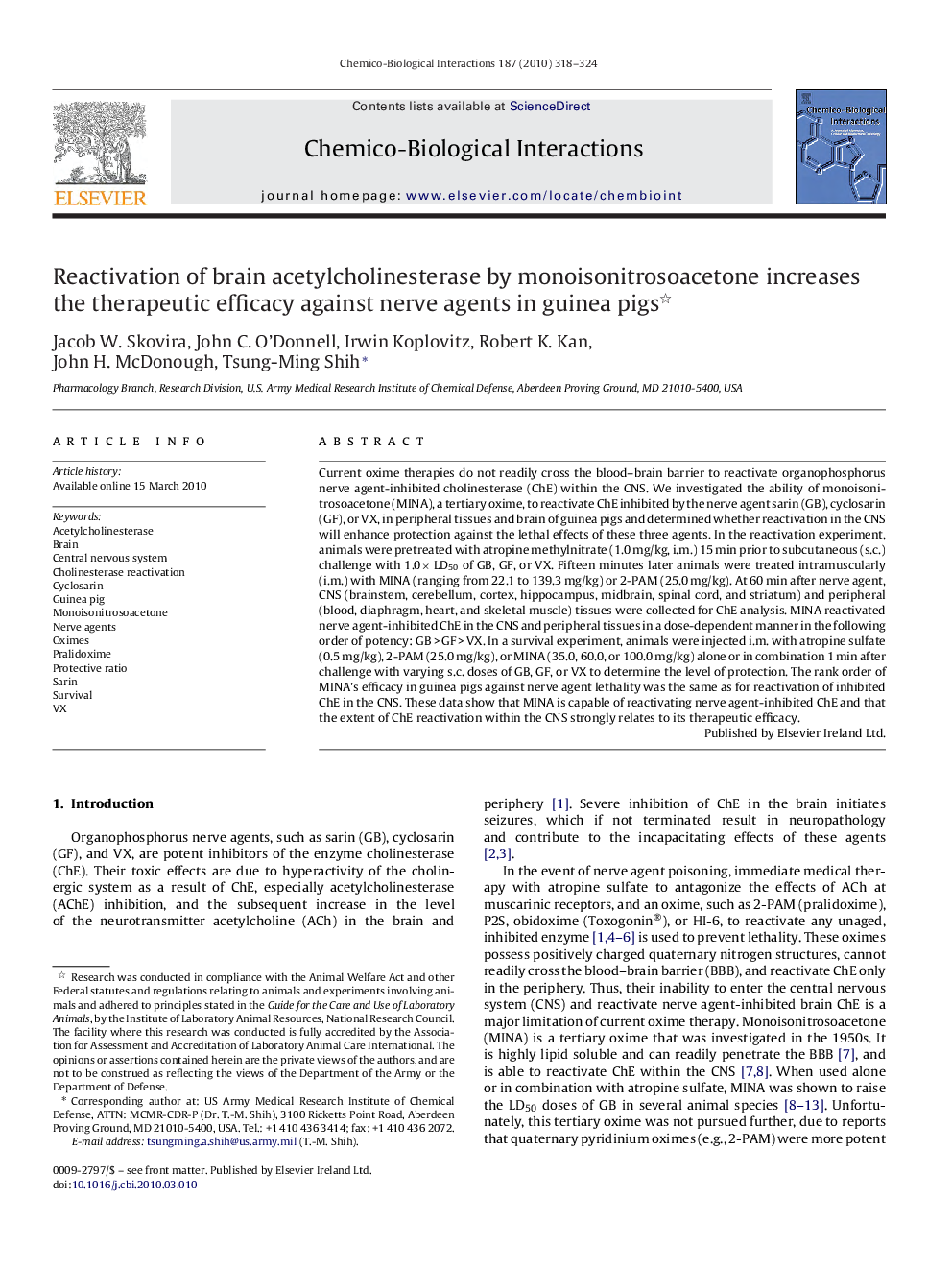| Article ID | Journal | Published Year | Pages | File Type |
|---|---|---|---|---|
| 2581801 | Chemico-Biological Interactions | 2010 | 7 Pages |
Abstract
Current oxime therapies do not readily cross the blood-brain barrier to reactivate organophosphorus nerve agent-inhibited cholinesterase (ChE) within the CNS. We investigated the ability of monoisonitrosoacetone (MINA), a tertiary oxime, to reactivate ChE inhibited by the nerve agent sarin (GB), cyclosarin (GF), or VX, in peripheral tissues and brain of guinea pigs and determined whether reactivation in the CNS will enhance protection against the lethal effects of these three agents. In the reactivation experiment, animals were pretreated with atropine methylnitrate (1.0Â mg/kg, i.m.) 15Â min prior to subcutaneous (s.c.) challenge with 1.0Ã LD50 of GB, GF, or VX. Fifteen minutes later animals were treated intramuscularly (i.m.) with MINA (ranging from 22.1 to 139.3Â mg/kg) or 2-PAM (25.0Â mg/kg). At 60Â min after nerve agent, CNS (brainstem, cerebellum, cortex, hippocampus, midbrain, spinal cord, and striatum) and peripheral (blood, diaphragm, heart, and skeletal muscle) tissues were collected for ChE analysis. MINA reactivated nerve agent-inhibited ChE in the CNS and peripheral tissues in a dose-dependent manner in the following order of potency: GBÂ >Â GFÂ >Â VX. In a survival experiment, animals were injected i.m. with atropine sulfate (0.5Â mg/kg), 2-PAM (25.0Â mg/kg), or MINA (35.0, 60.0, or 100.0Â mg/kg) alone or in combination 1Â min after challenge with varying s.c. doses of GB, GF, or VX to determine the level of protection. The rank order of MINA's efficacy in guinea pigs against nerve agent lethality was the same as for reactivation of inhibited ChE in the CNS. These data show that MINA is capable of reactivating nerve agent-inhibited ChE and that the extent of ChE reactivation within the CNS strongly relates to its therapeutic efficacy.
Keywords
Related Topics
Life Sciences
Environmental Science
Health, Toxicology and Mutagenesis
Authors
Jacob W. Skovira, John C. O'Donnell, Irwin Koplovitz, Robert K. Kan, John H. McDonough, Tsung-Ming Shih,
